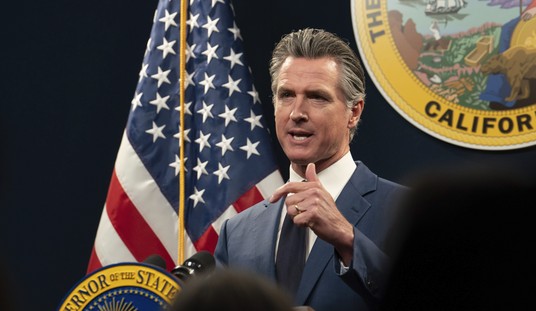A writer on X named Yehuda Teitelbaum posted a long thread earlier this week about the recently released report by the Presidential Task Force on Combating Antisemitism and Anti-Israel Bias at Harvard University. Teitelbaum was shocked at the incidents described in the report, as were many of those who commented on the thread.
The problem at Harvard, the other Ivies and academia in general isn't antisemitism per se; it is Marxism and the mandated groupthink that accompanies it. Watching adherents of the prevailing ideologies in academia is like watching schools of fish; if someone with the correct status decided it was time to promote Israel rather than denounce it, many of today’s most vocal antisemites would switch gears in a heartbeat.
Colleges and universities should encourage independent thinking -- and many do. But the antisemitism, violent protests and other societally corrosive theories and behaviors we’re witnessing are evidence of indoctrination, not education. They are not proof of independent thought but of ideological conformity. At its worst, that conformity is grounded in a belief in the relativity of "truth" and wedded to a sense of moral superiority. That’s why those who fall prey to these tactics are impervious to argument and blind to actual facts; what matters, instead, is adherence to and promotion of the "narrative."
It explains -- at least in part -- why so many K-12 teachers seem to be suddenly questioning their gender -- and insisting that schoolchildren must question theirs -- as well as inserting information about every conceivable sexual practice into the curricula of elementary, middle and high schools. (Parents who discover and oppose these practices and sexually explicit materials often find themselves with little recourse except for litigation. Mahmoud v. Taylor¸ a case in which Maryland parents are challenging the state’s policies on the use of LGBTQ books in grade school curricula, will be argued before the United States Supreme Court this year.)
Where do these theories arise? In America’s colleges and universities.
Recommended
It’s why some of the country’s best-known reporters and journalists now pretend that they didn’t see Joe Biden's painfully evident cognitive impairment during the 2020 election and precipitous decline throughout the four years of his presidency and aborted campaign for reelection -- or blame it on Biden’s inner circle. There was an agenda, and that was to defeat Donald Trump. If that meant lying to the American public and propping up a senile president incapable of performing his duties, so be it.
Most of our media personalities receive their educations at American colleges and universities, where a popular theory is that the role of journalism isn’t to report events but to shape them. (Last year, I interviewed Ron Yates, former foreign correspondent for the Chicago Tribune and dean of the College of Media at the University of Illinois. Ron spoke to me extensively on the woeful state of journalism education on this country, and writes on this and other topics on X and Substack.)
Our institutions of higher education have harbored little Marxist indoctrination factories for decades. Thus has the "oppressed versus oppressor" narrative come to permeate virtually every aspect of public discourse: women (assuming you can define them) are oppressed, and men (ditto) are the oppressors; people with gender dysphoria or unusual sexual proclivities are oppressed, while heterosexuals are oppressors; racial minorities (whatever that means in a country where intermarriage is increasingly the norm) are oppressed, while whites are oppressors; knowledge, facts and rationality are oppressive tools of “privilege” that can only be overcome if ignorance and individual perception are valued just as highly.
Whoever is deemed by the theorists du jour to be the “oppressors” must be silenced, demonized, deplatformed and destroyed; everything “oppressed” must be celebrated and promoted. (Dr. Karlyn Borysenko has a great thread on X exposing the content of a recent conference held by the Institute for Research into Male Supremacism. It’s a must-read.)
Unfortunately for Jews, the dominant narrative in contemporary academia is that the residents of the tiny country of Israel (smaller in size than the state of Hawai’i; population 9.5 million) are the "oppressors," while the dozen or so Arab countries surrounding Israel are the "oppressed." This, notwithstanding the greater populations of those countries (470 million), their greater land masses, their significantly greater natural resources or the fact that some of their governments want Israel wiped off the map.
The outbreak of antisemitism on college campuses has come as a grievous shock to American Jews, many of whom are graduates of these esteemed educational institutions, teach in them or have donated huge sums of money to them. But Marxism has long engaged its intended victims in their own destruction. A quote apocryphally attributed to Karl Marx and/or Vladimir Lenin goes, "The last capitalist we hang shall be the one who sold us the rope." It doesn’t matter whether either man actually said those precise words; the practice is what it has always been.
What is important to understand, therefore, is not why today's target is the Jews; it is the mechanics and machinery, the ideology and infrastructure that permeates academia, all of which has made this phenomenon possible -- if not inevitable. Today, it’s the Jews, tomorrow it will be some other group.
The antisemitism, outbreaks of campus violence and abject nonsense taught within so many academic programs are among the reasons why college applications are down, and polls show that fewer Americans have confidence in the quality of college education. It is still true that a good college education improves one’s future prospects, and that there are plenty of places to obtain a truly good college education. But it is also true that academia has escaped serious scrutiny and real consequences for far too long. The virulent antisemitism on college campuses is only a symptom of deeper concerns; but here’s hoping that it is enough to make the public demand profound changes in the way our institutions of higher education are funded and run.


